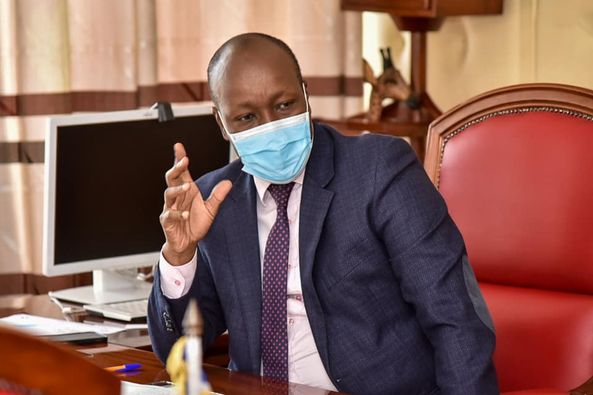The Government is keen on carrying out reforms in the Technical and Vocational Education and Training (TVET) sector to achieve access and equity in enhancement of quality and relevance.
Speaking during the 14th graduation ceremony at Nkabune Technical Training Institute, Meru County, Vocational and Technical Training Principal Secretary, Dr.Margaret Mwakima said they were focused on strengthening the sector as the main solution to youth unemployment in the country.
She said the government has so far increased the number of TVET institutions from 52 in 2013 to 238 in 2021 at a cost of Sh10.6 billion and that out of the 238 institutions, 192 were operational and 46 were nearing completion.
She added that due to the Sh10.3 billion capitation, government grants, and Sh11.1 billion from Higher Education Loans Board (HELB) to TVET trainees since 2019, there has been an increase in enrolment from 55,945 in 2013 to 249,316 in 2021. Additionally, a conditional grant of Sh 2 billion is given to VTC every financial year.
She noted that making TVET an effective driver for social-economic development in Kenya needed concerted efforts and actions of all stakeholders.
“One of the critical stakeholders is the private sector since TVET and skills training does not create jobs themselves but through the private sector,” said Dr. Mwakima.
She added that the education sector has also undertaken education curriculum review and reforms with a focus on having a competency-based system aimed at improving knowledge, skills, values and attitudes to enable learners to successfully perform a function.
“The Competency-Based Education and Training (CBET) concept, which is outcome-based, industry centered and flexible, entails the involvement of industry in all aspects of training and its implementation,” she said.
The PS said some of the objectives of CBET were to establish occupational standards which could be measured; train competent individuals with transferrable skills; link education and training to the skills needed by employers; promote lifelong learning through progression and transfer; and develop attitudes and abilities to respond rapidly to change.
This, when achieved, she added, will meet the demands of industry and business and help in bridging the skills gap that has continued to be experienced in the country.
To make sure technical education is accessible to all school leavers, Dr. Mwakima said the Government has made sure that each county has a technical training institute and vocational training Centre.
“In order to increase student enrollment in the institutions, Kenya University and Colleges Central Placement Service (KUCCPS) has been placing students in TVET institutions.
Through the government’s initiative, KUCCPS has been paying a capitation fee of Sh30,000 for each trainee. HELB is also giving loans to trainees at subsidized rates to ensure their retention at the institutions,” she said.
She said TVET’s vision is to deliver a high-quality competent workforce for sustainable social-economic and environmental developments and hence the government is establishing more technical institutions and providing the necessary resources.
Nkabune Principal Ms. Eunice Njenga said the institution has made tremendous improvements with time with the current population of 1,645 students. “We are anticipating a population of 3000 students by 2023,” she said.
“I appeal to the community to seize the great opportunity and continue building hostels to accommodate students together with the self-sponsored trainees. You are also encouraged to enroll your children to benefit from the resources provided by the government,” she added.
By Dickson Mwiti




